The bare bones about bear encounters
VERNON. Nuisance rates are up in NJ, and harvest rates are down in NY, but everyone seems to have a bear story to tell. Have photos of local bears? Email them to us at comm.engage@strausnews.com.
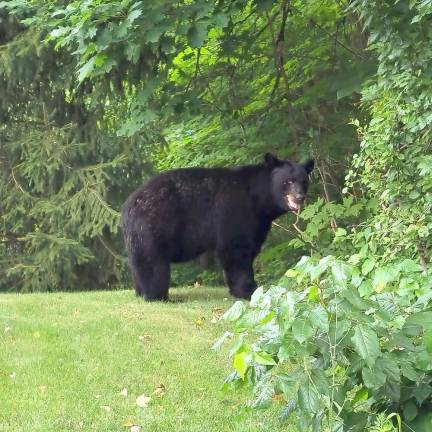

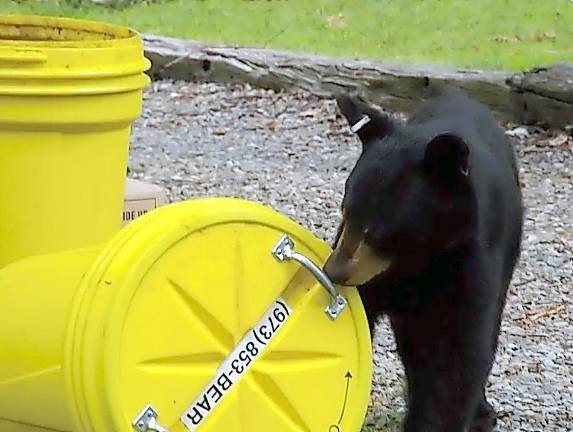
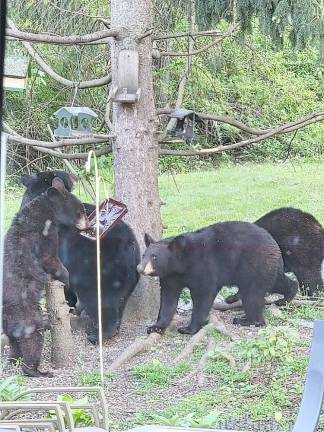
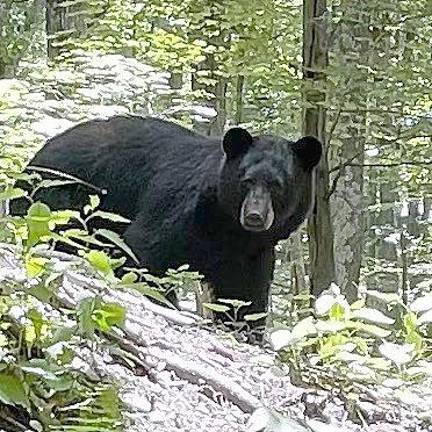
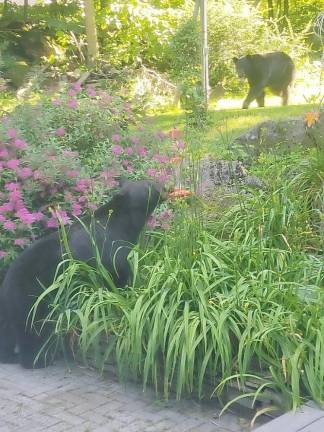
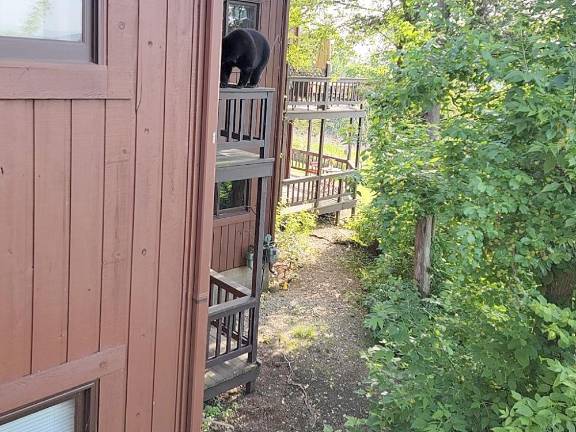
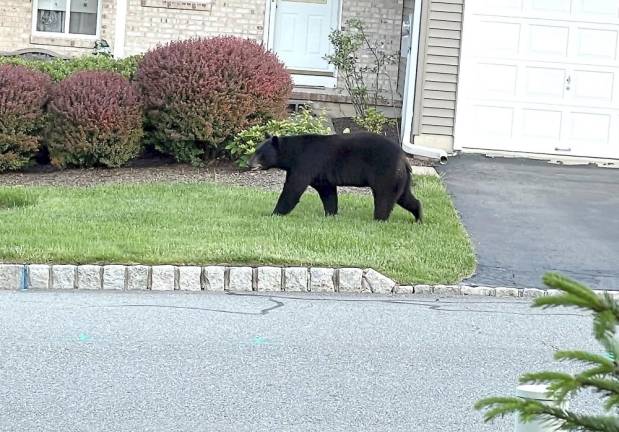
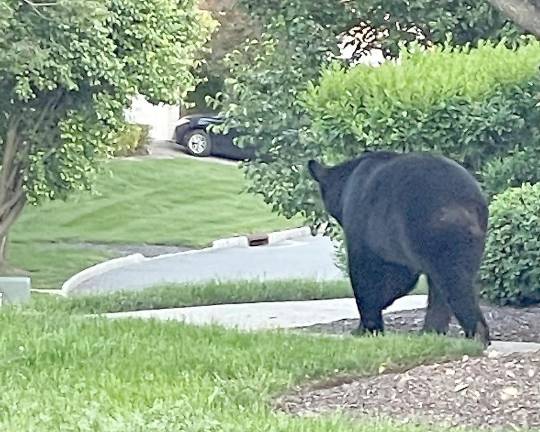
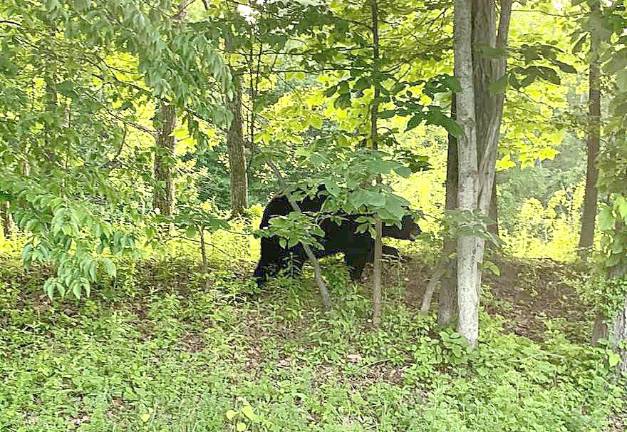
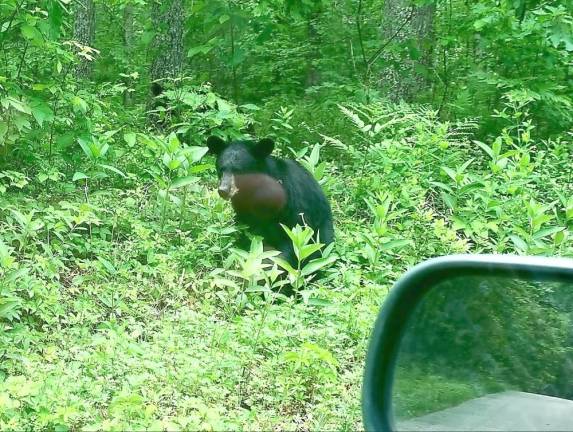
From “bear-proof” garbage cans to giving up on bird feeders, many local residents are doing their best to avoid attracting black bears in our area.
Both the NJ Department of Environmental Protection (DEP) and NY Department of Environmental Conservation (DEC) have received numerous reports of black bears, less in the wild and more in residential areas.
According to the NJDEP, the number of incidents from January through June has increased from 372 in 2021 to 804 in 2022, an increase of 116%. The incidents are categorized as “sightings” or “damage and nuisance.”
While bear hunts are still permitted in NY, NJ Governor Phil Murphy called it off for his state, letting a 2007 policy on bear hunting expire. On social media, Murphy tweeted, “The 2020 Bear Hunt will be the LAST.”
The bear hunt in NJ has been the subject of much debate over the past several years. Proponents of the hunt see it as a conservation effort to thin the population, while animal rights activists don’t agree, and instead advocate for the rights of bears to exist freely.
Close Encounters
Meanwhile, residents of both NJ and NY are experiencing more interactions with the bears.
This past spring there were reports of attacks against people, which is highly unusual. In January of this year, long-time Sparta, NJ, resident Carol Neighbour encountered a bear while taking out her garbage in the early morning hours. Unfortunately, the encounter led to the death of her dog, Amanda, a springer spaniel, and some injuries to Neighbour herself.
“I was taking out my garbage and had to go back inside for another bag before I filled the can and rolled it to the end of the driveway. My dog was outside with me, and next thing I knew she was barking and standing off with a bear. It happened so fast, and I wasn’t expecting the bear to be so close to my home,” she stated.
Neighbour bravely tried to defend her loyal companion against the bear by swatting at it (which is not recommended), but the bear lashed out at her, causing injuries to her head and leg. While Neighbour was reeling back from her injuries, the bear decided to pick up her dog and walked down the driveway toward the woods with Amanda in her mouth. Unfortunately, later, police found Amanda’s remains in the woods. Neighbour was transported to the hospital and received treatment for her wounds.
“I know it wasn’t the smartest thing to do, to hit the bear, but in the moment, nobody really knows how they will react in that situation,” said Neighbour.
Recently, a Lafayette, NJ, woman, who was not named by authorities, was attacked while walking to her mailbox, sustaining wounds to her arm and backside. However, comments on social media argued over who was to blame. Comments ranged from “bears don’t attack unless provoked” to “bears are unpredictable because they are wild animals.”
Again, both sides of the debate are ongoing.
A elderly resident of Great Gorge Village in Vernon, NJ, who wished to remain anonymous, has decided to pack up and move to Florida with her dog, due to several sightings and near encounters with a bear. “I’m just too old and too afraid to walk my dog around here anymore,” she said.
Lifelong Montague, NJ, resident Tim Batko has had many bear encounters while living on the border of NJ and Pennsylvania, both during casual moments at home and while hiking around High Point State Park. In one such instance, it was the sound the bear made that was most unsettling. “The scariest was definitely hearing one take down a fawn, and then seeing it. I was doing yard work and heard a blood-curdling cry followed by dead silence. I ran into the wood line thinking it could have been a child hurt in my back woods and no more than 20 feet away I saw a black bear get up on a downed tree, rotate its head towards me, and from its jowls hung a baby fawn. It then ran off with it in its mouth.”
While the attacks appear to be mostly in NJ, a few NY residents also relayed their stories.
Warwick, NY, resident Brian Conn reported seeing a mom with four cubs around his property. He’s seen the cubs grow, one of which he described as a “big boy” and “definitely a garbage tipper.” Conn has recorded video of the bears getting into the trash.
Greenwood Lake, NY, resident Chris McIntosh was recently taking a morning drive in the Town of Warwick and snapped a shot of a rather large black bear appearing to smile at the camera. But McIntosh wasn’t too concerned. “Black bears can cause destruction, knocking down bird feeders and trash cans, but are otherwise typically harmless and are scared easily.”
In a social media post, another Warwick resident, Paola Brooke, caught a bear trying to break into her chicken coop. But, she noted, “the bear was not successful and my chickens are all fine.”
Bears by the Numbers
Whether the increase of sightings and incidents is due to the lack of a Bear Conservation Program in NJ has yet to be determined; more data would need to be collected to see a definitive pattern.
In 2020, the NJDEP estimated the state’s bear population to be around 3,158, which was a significant increase from the 2019 population, estimated at 2,208.
Over the border, NY has an estimated population of 6,000 to 8,000 black bears. However, the NYDEC showed a decrease in the number of bears “harvested” in the state in 2021.
According to the NYDEC, hunters harvested an estimated 1,346 bears in 2021, representing roughly 30% fewer bears harvested than in 2020. That’s also about 10% fewer bears than the five-year harvest in both the northern and southern zones of NY.
Throughout NY, the bear harvest numbers fluctuate each year, alternating from a high harvest one year to a low harvest the next, which is influenced by changing patterns in cub production and food availability.
Regardless, the bear population seems to be very active, and people who choose to live, camp or farm in the country have many ways of avoiding conflict with these wild animals by taking measures to not attract the bears, as well as remaining vigilant and aware while being out and about their homes.
NOTE: The first video seen in the slide show was recorded in Vernon, NJ, by Ryan and Kelsey Olsommer. The second and third videos were recorded in Warwick, NY, by Brian Conn.
“I was taking out my garbage and had to go back inside for another bag before I filled the can and rolled it to the end of the driveway. My dog was outside with me, and next thing I knew she was barking and standing off with a bear. It happened so fast, and I wasn’t expecting the bear to be so close to my home,” said Carol Neighbour, of Sparta, NJ.